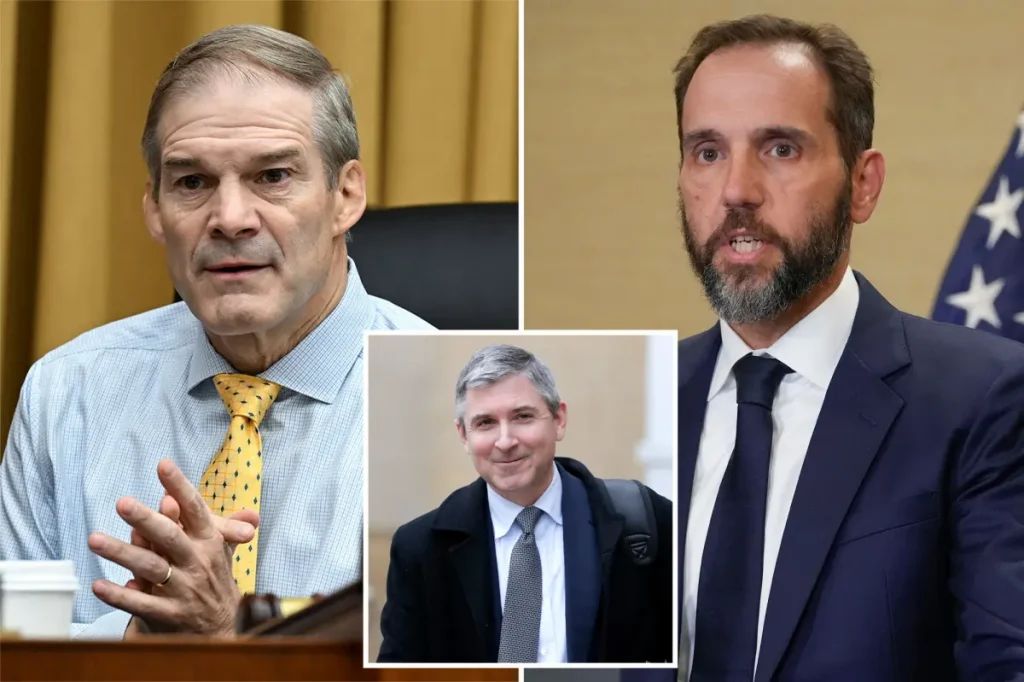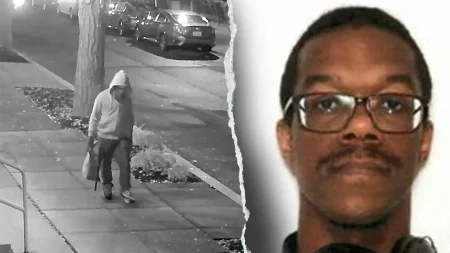House Judiciary Chairman Refers Former Special Counsel Aide for Criminal Prosecution
In a dramatic escalation of tensions between Congressional oversight and the Department of Justice, House Judiciary Committee Chairman Jim Jordan has taken the significant step of referring Thomas Windom, a former senior assistant to special counsel Jack Smith, for criminal prosecution. The Ohio Republican’s action centers on allegations that Windom obstructed justice by refusing to answer key questions during a committee investigation, despite being under subpoena. This development highlights the increasingly contentious relationship between Republican-led congressional committees and those involved in investigations related to former President Trump. Jordan’s frustration stems from what he characterizes as Windom’s deliberate stonewalling on matters of legitimate congressional concern, including potential surveillance of members of Congress and coordination between Smith’s team and the former House Select January 6th Committee.
The situation brings to light fundamental questions about the balance of power between branches of government and the scope of congressional oversight authority. In his letter to newly appointed Attorney General Pam Bondi, Jordan emphasized that “Congress cannot perform its oversight function if witnesses who appear before its committees corruptly refuse to provide information that the law requires them to furnish.” This stance reflects a broader Republican position that Justice Department investigations into the 2020 election aftermath have been politically motivated and require thorough congressional scrutiny. The chairman specifically pointed to Windom’s appearance before the committee on September 30, which followed an earlier interaction that Jordan found unsatisfactory. Despite being under subpoena, Windom allegedly continued to decline answering certain questions, creating what Jordan describes as a direct impediment to Congress’s constitutional oversight responsibilities.
At the heart of the dispute lies disagreement over what information Windom was authorized to share. According to Jordan, the Justice Department had actually provided authorization for Windom to answer the committee’s questions, making his refusal particularly problematic from the chairman’s perspective. The committee sought details about several sensitive matters, including how Smith’s team might have interacted with the now-disbanded House Select Committee that investigated the January 6th Capitol riot, as well as information about an investigation code-named “Arctic Frost” that reportedly examined actions of certain members of Congress. Perhaps most controversially, the committee wanted answers about potential surveillance of Republican Congressman Scott Perry of Pennsylvania, touching on sensitive questions about executive branch investigations of elected officials.
This referral represents the latest chapter in the House Judiciary Committee’s broader investigation into Jack Smith’s work examining former President Trump’s efforts to overturn the 2020 election results. Jordan has persistently sought testimony from Smith himself, arguing that full transparency is necessary to determine whether the special counsel’s investigation was properly conducted or potentially influenced by political considerations. The committee’s Republican majority has framed their inquiry as necessary oversight of what they characterize as potential weaponization of the Justice Department against political opponents, while Democrats on the committee have generally viewed the investigation as an attempt to undermine legitimate law enforcement actions related to the 2020 election and its aftermath.
The situation raises profound questions about testimonial obligations before Congress and the limits of executive branch confidentiality. While executive branch officials and their associates traditionally enjoy some protections regarding internal deliberations, Congress maintains that its oversight authority is essential to the constitutional system of checks and balances. Jordan’s criminal referral essentially argues that Windom crossed a line from protected confidentiality into illegal obstruction of a congressional investigation. This puts Attorney General Bondi in a difficult position of needing to determine whether to pursue charges against a former colleague from the Justice Department, creating potential conflicts of interest and questions about the independence of any subsequent investigation.
Whatever the outcome of this specific referral, the confrontation illustrates the deep political divisions that continue to surround investigations related to the 2020 election and January 6th events. As congressional Republicans, now in the majority in the House, exercise their oversight powers more aggressively, these types of conflicts between branches may become increasingly common. The situation also highlights the challenges of conducting politically sensitive investigations in a highly polarized environment, where questions about improper influence or bias inevitably arise from various perspectives. As this referral makes its way through the Justice Department, it will likely serve as another flashpoint in ongoing debates about power, accountability, and the proper boundaries between congressional oversight and prosecutorial independence in American democracy.










